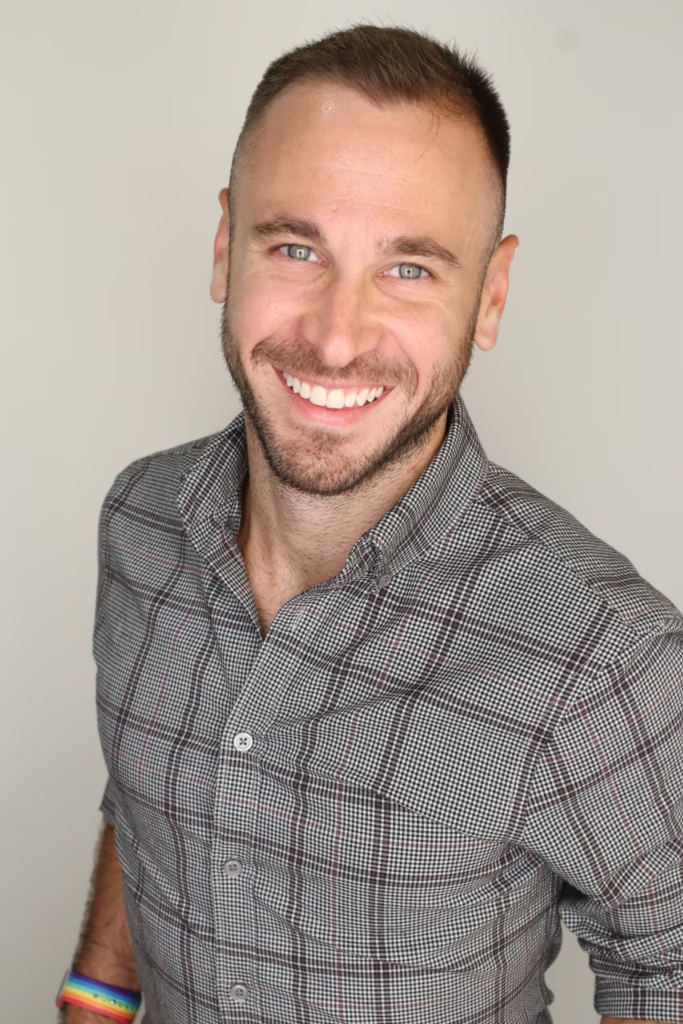What Makes a Space Truly Safe? Hint: It Starts With You
Published on May 12, 2025
Safety is a funny little concept, isn’t it? Raise your hand if it doesn’t occur to you very often to think of how safe you might be in your current environment. If your hand is up, congratulations– you found a place in which you don’t feel the incessant need to look over your shoulder.
It also means you carry a level of privilege in that particular space, whether it’s something you’d like to admit to yourself or not.
In a recent post, I shared that safe spaces are a fundamental requirement for people in the LGBTQ+ community, and have been necessary for as long as we’ve been around. It’s not just us that need them– communities of color, women, and any other underserved and underrepresented community all need spaces in which they can be their most authentic selves.
I talked in that post about the struggle to reconcile with people or places that once felt like nirvana, but eventually became a nightmare. The sting of that is more than one blog post can truly cover, but I think it’s worth exploring the topic a bit further.
The question begs: why is it that we need safe spaces? The most obvious answer is survival. If we know a place is not conducive for our physical safety, we stay away from it. Think of the moment Mufasa, the great lion king, says to his son, “…you must never go there…” to keep his son away from obvious danger. From a young age, we learn where we can and cannot go, and we guide those we care about in similar directions.
However, it goes deeper than physical safety. Emotional, mental, and spiritual safety are just as important to consider. You deserve to feel safe wherever you go, but unfortunately we know that this isn’t always the reality.
In the absence of safety, we find something called shame, and it’s this little bugger that festers and makes itself the bane of our existence for a good portion of our lives. Many of us grew up in environments that led us to believe that there was something fundamentally wrong with us. Learning this at young, impressionable, and incredibly vulnerable ages instills a belief that we spend the rest of our lives working to unlearn, grapple with, and heal from.
To be clear, feeling shame doesn’t immediately mean that we are ashamed of ourselves. Rather, it means that we play a constant game of tug-of-war with ourselves, struggling to determine which parts of ourselves are authentic and which ones we’ve simply learned as defense mechanisms in order to feel safe wherever we go.
Regardless of whether you consider yourself an ally of a community, or you’re a part of said community, we all have the opportunity to offer a place of peace and healing for others, and all it takes is a little empathy and a willingness to learn.
Here are a few ways you can start becoming a more safe space for others. (Hint: it’s less about perfection, and more about presence.)
Listen First, Speak Later.
Truth be told, most people simply just want to be heard. You don’t have to have all the answers– in fact, you don’t even have to have any at all. An open heart that validates another without jumping in with advice or trying to compare your own experiences to theirs can make all the difference.
Try saying things like, “that sounds incredibly hard,” or, “thank you for trusting me with that.”
Believe Others When They Share Their Truth.
Safety gets shattered when people feel doubted, allowing more shame to pour in. It also obliterates that person’s ability to ever trust you with something deep and meaningful ever again. When someone tells you they felt harmed, discriminated against, or made in any way to feel unsafe– believe them. Belief in someone is a radical act of solidarity, and it goes a long way to establishing trust and a secure sense of peace.
Investigate Your Own Biases and Privileges.
Not a single person on this planet is without their own implicit (and sometimes, explicit) biases. If you never own up to these on your own accord, as well as investigate where they originate and how best to navigate them, you won’t be able to fully show up for others.
As important is the topic of privilege. Some of us carry more of it than others, and when we do, reflection is essential. Acknowledge and understand the space you take up, as well as what you can do with it to bring about real, meaningful change.
Consider this: Whose voices do you elevate? Whose pain do you downplay? Where can you do more?
Step Up When It Counts
Spoiler alert: being a safe person doesn’t mean you only do it when others are looking or when it’s the popular thing to do. The most meaningful work is done when it’s really hard to do. Ever been in a group chat, family dinner, or work meeting where someone thought it funny to throw a slur out or say something completely discriminatory in the name of humor? Yeah…that’s when your advocacy is most needed. Yes, it’s uncomfortable– but if you know better and want better for everyone, then it’s a full-time job with no holidays or vacation.
–
Truth be told, there are countless ways in which a person can really be there for others. It’s important to remember that we’re all on a journey of learning and evolving, and nobody is completely perfect. If and when you mess up, it’s not the end of the world. Own it, apologize, and then do better.
Safe spaces don’t just materialize out of thin air. Rather, they’re built over time, particularly best by those who truly understand what it’s like to feel unsafe or uneasy. To be a safe space, you don’t have to possess the loudest voice in the room. You simply have to ensure that everyone in the room has a voice. Recognizing that we’re imperfect but showing up anyway makes all the difference in the world.
That’s where I’ll leave you for now.
Until next time,
Stay strong.
Stay together.
Stay in the light.
-Ben the Blogger
